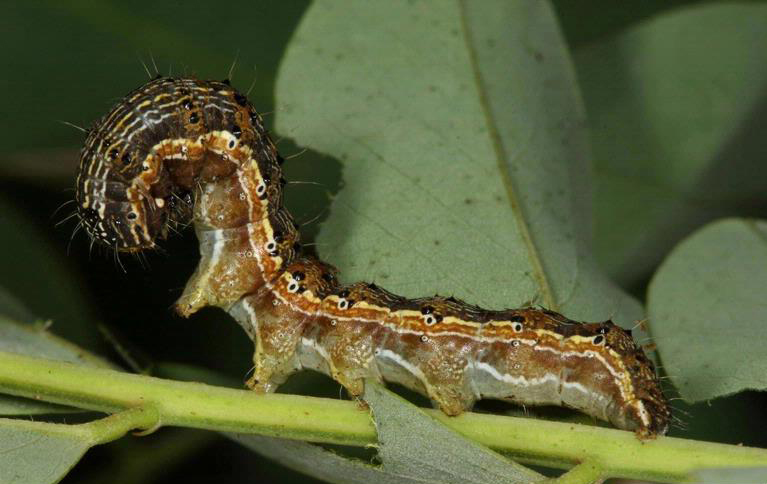
This love story between two invasive pests is set in the southern states, but most notably Texas. The cotton bollworm entered from Mexico around 1916 and within 20 years had spread to over 119 counties within Texas, infuriating farmers along the way. The adult is a small moth, but before reaching maturity it goes through three other stages of development: egg, larva, and pupa. The larvae have been described as being aggressive, occasionally carnivorous and are reported to even cannibalize each other. During the destructive larval stage it eats the maturing seeds within the cotton boll.
In the 1960s and 1970s chemical insecticides, including DDT, were used in an attempt to control their spread. The following decade ushered in a heightened interest in nonchemical pest control. After experimenting with hormone manipulation, the Texas Department of Agriculture came up with a romantic solution. Through the use of insect pheromones, researchers tricked male bollworms into mating with female budworms (another invasive pest). Since the different species had mismatched genitalia, upon mating the insects became locked together and died. Happy Valentine's Day!
In the 1960s and 1970s chemical insecticides, including DDT, were used in an attempt to control their spread. The following decade ushered in a heightened interest in nonchemical pest control. After experimenting with hormone manipulation, the Texas Department of Agriculture came up with a romantic solution. Through the use of insect pheromones, researchers tricked male bollworms into mating with female budworms (another invasive pest). Since the different species had mismatched genitalia, upon mating the insects became locked together and died. Happy Valentine's Day!
